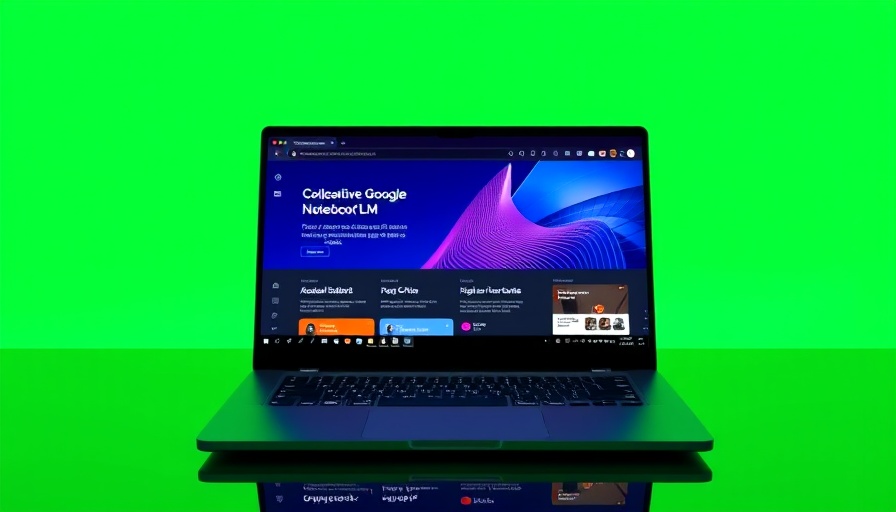
Google’s Pioneering Guidelines on AI Optimization
As the digital landscape evolves, Google has provided captivating insights to help website owners navigate the burgeoning world of AI search features. The company's recent blog post by Search Advocate John Mueller sheds light on how to effectively optimize for AI Overviews and AI Mode, aimed at boosting user engagement and visibility in search results. As AI reshapes how queries are formulated, understanding these new dynamics is crucial for businesses striving to excel in a tech-savvy marketplace.
Understanding AI Mode: A Shift in Search Behavior
Google has acknowledged a significant shift in user behavior with the introduction of AI-powered search experiences. Users are not only asking longer, more detailed questions but are also engaging in follow-up queries that demand precision and depth. This evolution presents both challenges and opportunities for publishers; a deeper understanding of user intent can lead to richer content creation. Mueller emphasizes that the key remains focusing on visitors and delivering unique and satisfying content tailored to their needs.
The Enduring Importance of Content Quality in AI Search
Despite the rise of AI-driven search features, Google's fundamental advice remains unchanged: producing unique, high-quality content is paramount. In his post, Mueller reinforces the idea that content should go beyond merely tricking algorithms. Instead, it should prioritize user experience and answer specific questions effectively. The advanced capabilities of AI search mean that content creators who offer thorough, well-researched material will stand out in an increasingly competitive landscape.
Technical Guidelines to Enhance User Experience
Google's advice extends beyond content creation to encompass technical requirements crucial for successful indexing and visibility. Key recommendations include ensuring Googlebot can access your site without restrictions, that pages load swiftly, and that user experience is prioritized through mobile-friendly designs and easy navigation. Mueller states, "Even the best content can disappoint users if they encounter a cluttered or confusing page." This highlights the critical intersection between compelling content and a seamless user experience.
Managing Your Content’s Visibility in AI Environments
For publishers eager to control how their content appears in AI-driven search results, Google assures that existing content management tags remain effective. Tags such as nosnippet and noindex allow content creators to regulate visibility in AI outputs. Thus, a strategic approach to managing how content is displayed can significantly affect traffic from AI-related search features.
Multimedia Content: Meeting the Demands of Multimodal Search
Alongside textual content, Google's emphasis on multimedia formats is increasingly relevant. As the AI's multimodal capabilities expand, so too does the importance of integrating images and videos into online content. This not only supports textual information but also enhances search results through a rich visual experience. Google encourages businesses to infuse high-quality visuals into their content, especially for those in e-commerce, further driving engagement and retention.
Future Insights: Anticipating the Evolution of AI in Search
As we look ahead, it’s evident that AI’s role in search will continue to grow more complex, presenting an ongoing challenge for businesses. Knowledge in this space will not just be about adapting to current practices, but also about anticipating how search behavior will evolve. Businesses that can leverage data analytics and user insights to inform content strategy will hold a competitive edge in the digital marketplace.
In conclusion, the guidelines shared by Google provide a roadmap for navigating the exciting yet challenging new terrain of AI search features. By focusing on quality content, technical precision, and multimedia integration, businesses can prepare for the future of search. If you want your website to thrive in AI's landscape, start optimizing today.
Stay ahead of the curve by implementing these strategies and ensuring your content is engaging, accurate, and accessible to users. For more information, check out Google’s documentation and start optimizing your digital presence for AI-driven search features.
 Add Row
Add Row  Add
Add 




 Add Row
Add Row  Add
Add 

Write A Comment